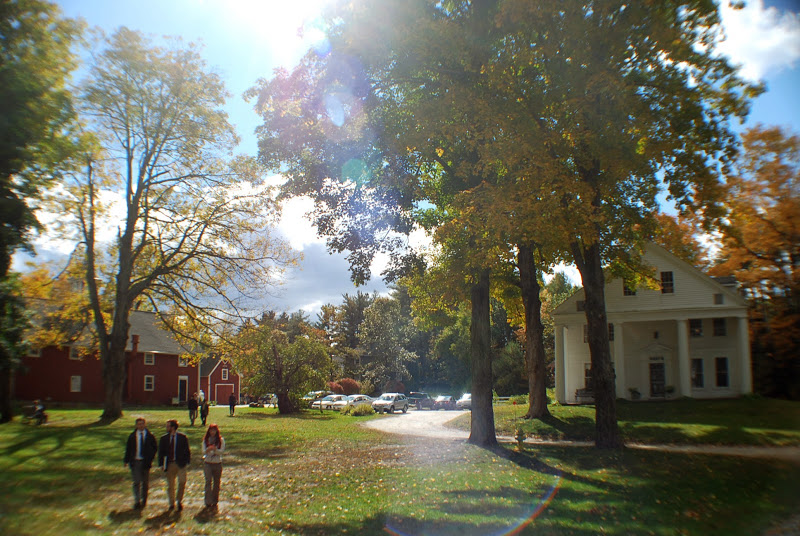The other day a very bright young lady in one of my classes at Saint Thomas More College said something that nearly stunned me. “The guys in our class,” she said, with a thumbs-up, and a nod of appreciation and gratitude, “are really great.”
In all my years at an American college, I have not heard anyone say anything comparable about the opposite sex. No one said it at Princeton, where I was an undergraduate. No one said it at Chapel Hill, where I got my doctorate. No one said it at Furman, a snake pit where I taught for two years on a tenure-track, and no one said it at the place where I landed and where I then taught for twenty-seven years (a place I will not name).
I am trying to sort out in my mind why this was so.
The first thing that occurs to me is that at those places men and women were in competition with one another, and something about that competition is uncomfortable for both sexes. After all, men are built to compete with other men for the attention of women, and women do the same, for the attention of men. We are not supposed to be enemies: men are for women, and women are for men. That is human nature.
Competition against one another introduces something foreign into their relations, something that seems to suppress the best in the boys, and that brings out in the girls a shade of contempt for their brothers, who prefer to check out or to slide rather than to seem to struggle.
For in all of those other places, marriage or the courtship that leads to marriage, the natural and paradigmatic relation between man and woman, is far from everyone’s mind.
It is perceived as a danger to the wallet, a threat to more important things in life, such as becoming a mid-level bureaucrat at a financial company, or an assistant professor of sociology, or something.
And yet deep calls unto deep: man and woman still need and want one another, whether they like it or not.
Which leads me to the second thing: in those places, what ought to be marriage is supplanted by “relationship,” what ought to be courtship is replaced by regular fornication, and what ought to be innocent ways for young people to get to know one another are replaced by nothing at all, or nothing I care to describe here.
And that makes no one happy.

I need not call to witness the conservative Catholics. I call to witness the women themselves, who flock like hurt pigeons to the safe space of a “women’s studies” program, or to courses within other programs that are sure to repel the young men who help to pay for them. I call to witness those who say, inaccurately on the facts, but accurately enough when it comes to gauging the poisoned atmosphere, that our college campuses are in the grip of a “rape culture.” I call to witness those who run orientation sessions for freshmen, who invariably must discuss what is and what is not “consent,” but who never speak of love, and who pass out baskets of condoms, but never valentines.
That leads me to the third thing. Where vice reigns, a sick pleasure like a fever rages, and leaves in its wake exhaustion, disillusionment, resentment, and loneliness.
There is the loneliness of those who are not swept up in the vice, sometimes because they wish to play the game but cannot, and sometimes because their moral instruction gives them the strength or the wisdom to say no to the huckster.
There is the greater loneliness of those who want to believe that the vice is not vice but the form that love takes in our day, only to be disabused of the fantasy by a boy or girl for whom sexual consummation is a heartbeat away from boredom.
At all such places, men and women have built up in their memories, in the mind and in the nerve-triggers of the flesh, one wreck after another, a tawdry night with someone they did not care for, a betrayal by someone they did care for but who promised nothing, a breakup that felt like being disemboweled. The vice has given them reasons to hate, and the more responsible you are for your failures, the more stubbornly will you blame those who give you occasion for them.
Imagine a place where none of that is so.
Virtue, as the perpetual adolescent known as modern man will not understand, is not a restraint upon freedom but a liberating power. If you abuse your knees you will not enjoy an alternative form of walking. You will be a cripple. If you abuse your moral powers, you will be a moral cripple.
If there are many of you, and people first condone and then accept and finally imitate your bad habits, you will not enjoy an alternative form of social intercourse. You will be moral cripples, hard put to enjoy any genuine society at all.
But at Thomas More, the students can take for granted that there won’t be the debauches that afflict other schools, and that makes for real comfort and pleasure – a breathing space for the shy, and a helpful and dynamic channeling of the energies of people who might otherwise be prone to dissipation.
It is a real pleasure to be around people who enjoy the happiness of being young and still innocent. I am not saying that they are saints, not yet. They are what used to be called normal; and I enjoy every minute I spend with them.
Peace, said Augustine, is the tranquility of order. I have found peace here. All you who care about Catholic education, consider. Why swing to Belial a censer full of burning money?














